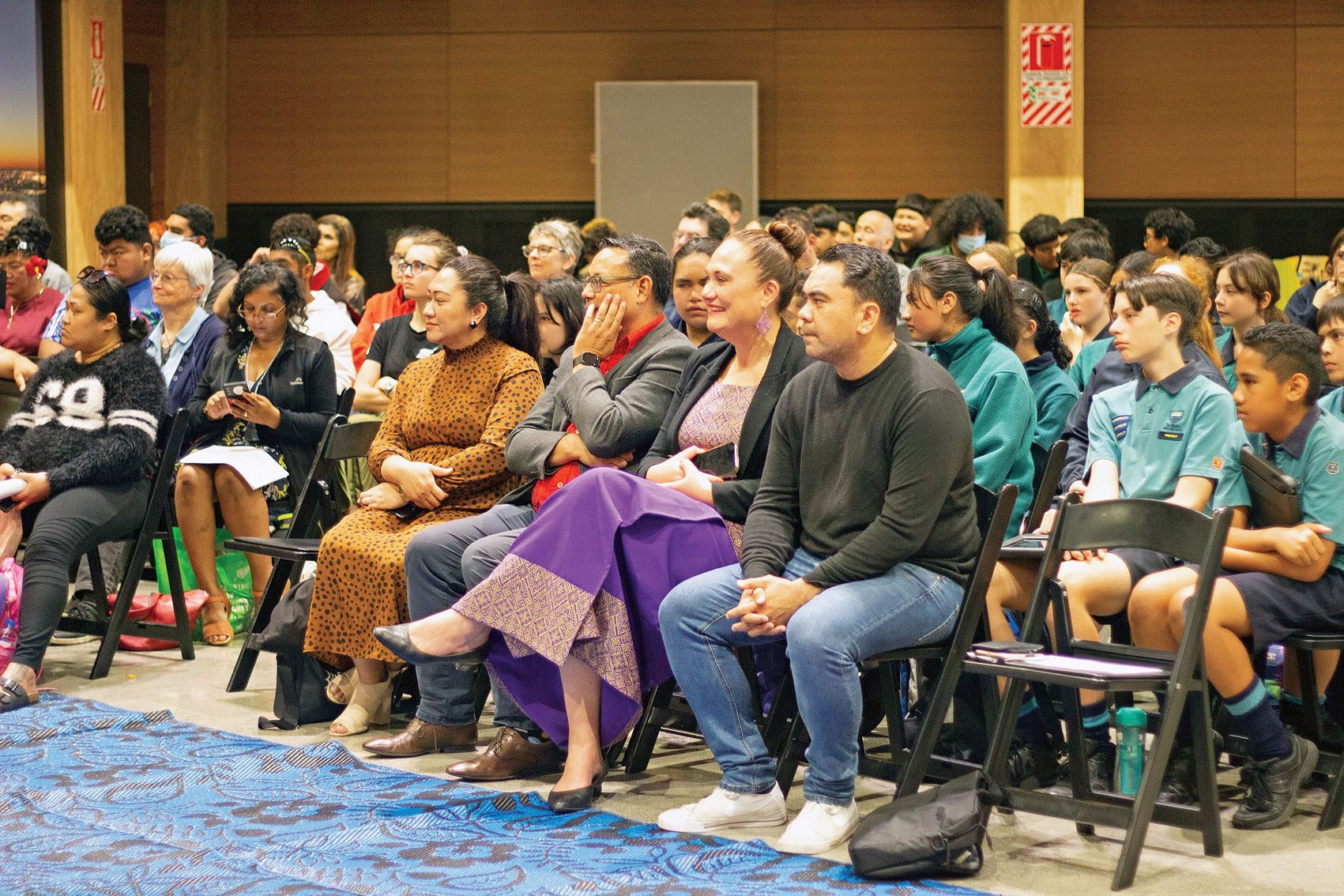In October 2022, over 300 attendees gathered in the impressive Aviation Hall at MOTAT to watch the Participatory Science Film Festival, hosted by Te Hononga Akoranga COMET.
Our campaigns, Curious Minds and WeSTEM programmes empower Auckland youth to explore science, technology, engineering, arts and maths (STEAM) through community-based research projects. STEAM is more than just experiments and prototypes - it is about exploring, creating and sharing new knowledge. Making a short film was the perfect challenge to encourage groups to hone their science communication skills and celebrate their learnings and achievements.
Fourteen groups submitted videos for the film festival, with participants ranging in age from toddlers to secondary school students. The films were largely produced by students and supported by teachers and science partners.
Curious Minds Project Manager, Ying Yang, says, “It is important for young people to talk about their science learning because it allows them to reflect on what they know and retell it in their own voices. It makes learning so much more powerful and encourages others to get excited about science. I was so impressed by the knowledge, enthusiasm and humour in many of the films I watched.”
Alongside watching the short films, project groups were also greeted by two guest speakers, Hon Carmel Sepuloni, MP for Kelston and Minister of Social Development and Chris Muller, Director National Programmes at the Ministry of Pacific Peoples. Ms Sepuloni shared her own science learning journey and her vision for all tamariki and rangatahi to be active lifelong learners.
Mr Muller shared that Pasifika peoples are expected to make up 30% of Auckland’s workforce by 2026. He expressed MPP’s desire to see a higher percentage of those jobs be in high value, creative and innovative industries such as science, technology, engineering, arts, and maths. Mr Muller says, “We need to see STEAM celebrated within our communities and that’s what is happening here today.”
Well done to everyone who participated in creating a video, and a big mihi to our sponsors and stakeholders MOTAT, MBIE, MPP and Auckland Council.
The groups that participated in the film festival were:
WeSTEM:
Matipo School, Regenerative garden designs - Using design thinking and environmental science knowledge, students have repurposed unused land in their school and turned it into an edible food forest.
Te Atatū Intermediate, Water for our garden - Students investigated the importance of water for plant life cycles and designed a sustainable watering system for the school garden.
Kelston Girls College, Kitchen chemistry - Our filmmakers at Kelston Girls College documented their trip to the food technology labs at Massey University where they met food scientists and completed hands-on activities to investigate the different chemical processes in cooking.
Liston College, Manaaki whenua - The Enviro Club at Liston College has researched renewable energies to create a solar-powered watering system for their kai mara and plant nursery.
Curious Minds:
Accelerating Aotearoa, Wai we o Tara Lead - Geek Camp participants reported on the water quality of Otara Creek and meet local leaders to ask, what can we do about our poop problem?
Tangaroa College, A spoonful of sugar - Students investigated the breakdown of fructose in the body to understand how different people absorb fructose differently and how exercise can affect the ability to break down these sugars in the body.
Te Ararata Stream Team, Aratakina a Moemoea – Field of dreams - Using a range of environmental monitoring protocols, volunteers at TST looked at the difference the stream restoration projects can have on urban flora and fauna.
Pasifika Early Learning Puna O le Atamai Aoga Amata – Pulega oil - Why is the coconut the tree of life? Students and families at PEL learned about the coconut plant and all the different ways that coconut can be used in daily life.
Whitebait Connection, Investigating te awa Puhinui - Whitebait Connection partnered with four south Auckland schools to investigate the health of the Puhinui stream and completed action projects to raise awareness of what we can all do to keep our awa healthy.
Glenbrae School, From garden to table - Students recapped the design of their school garden and what they have learnt about soil, plants and the science of growing kai.
James Cook High School, Bee benevolent - Over two years, horticulture students at James Cook High have been building and nurturing beehives in three different south Auckland sites to investigate the impact that different foraging sites have on honey production and quality.
Homai School, Follow the sun, ancestors of Maui - Partnering with the We Share Solar programme, Homai School students have learnt all about how energy is generated and how solar energy can be used to improve energy poverty in their community.
Aorere College, eDNA monitoring - Students at Aorere College are working with scientists at Wilderness Labs and Auckland Council to understand the biodiversity in Waokauri Stream through eDNA testing, to answer the question of how restoration is impacting the stream ecosystem.
Mount Richmond Special School - Students shared their design thinking process and how they used STEAM to design safe and accessible kitchen tools for people with physical and visual impairments.
All the short films are available for viewing here
